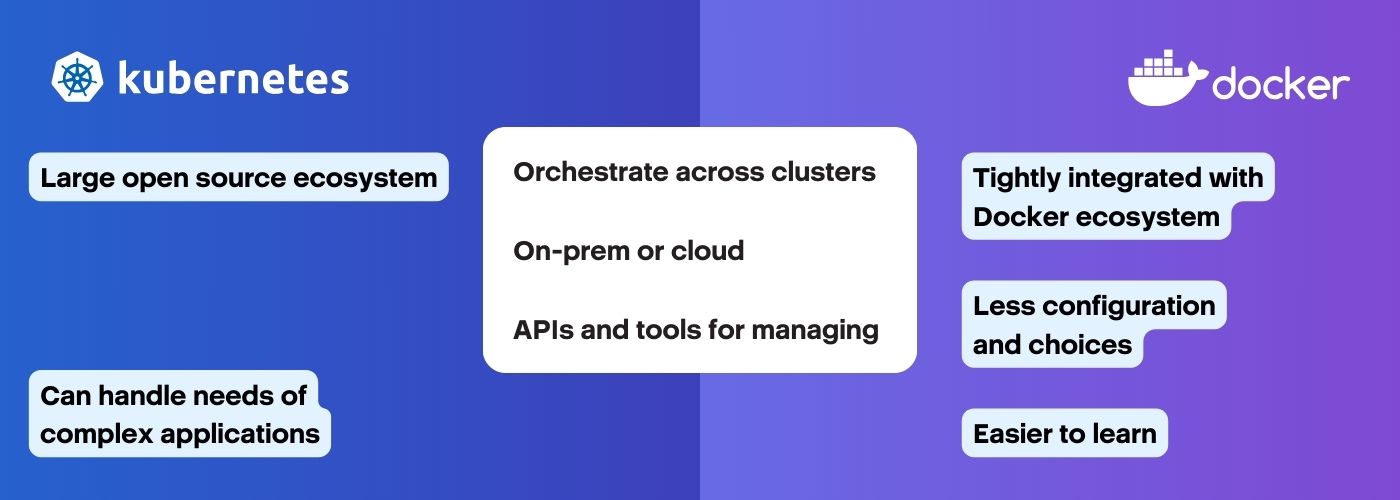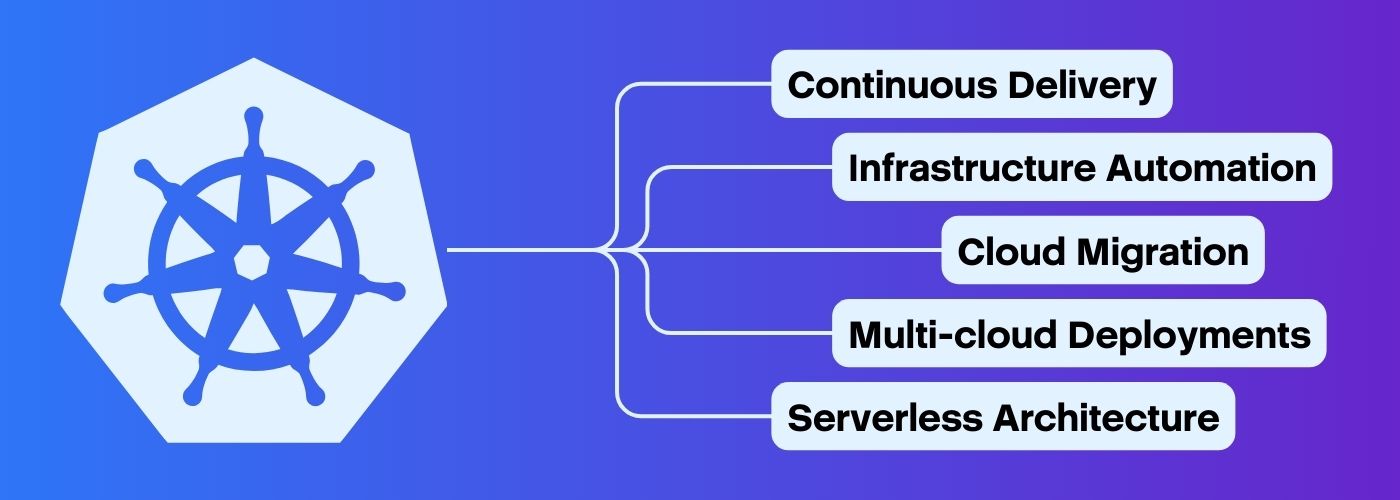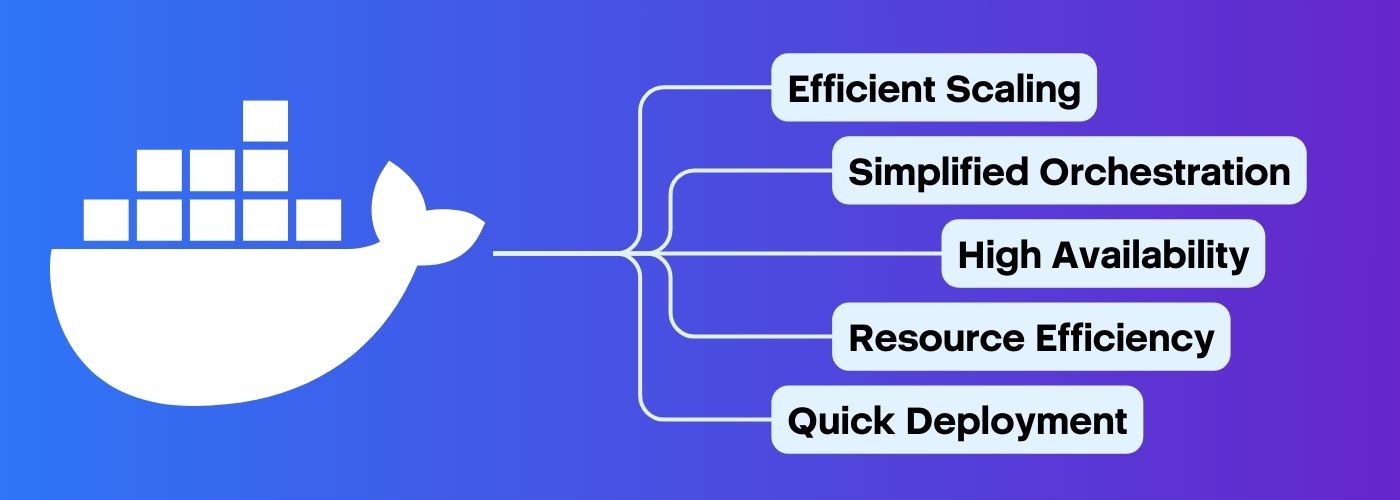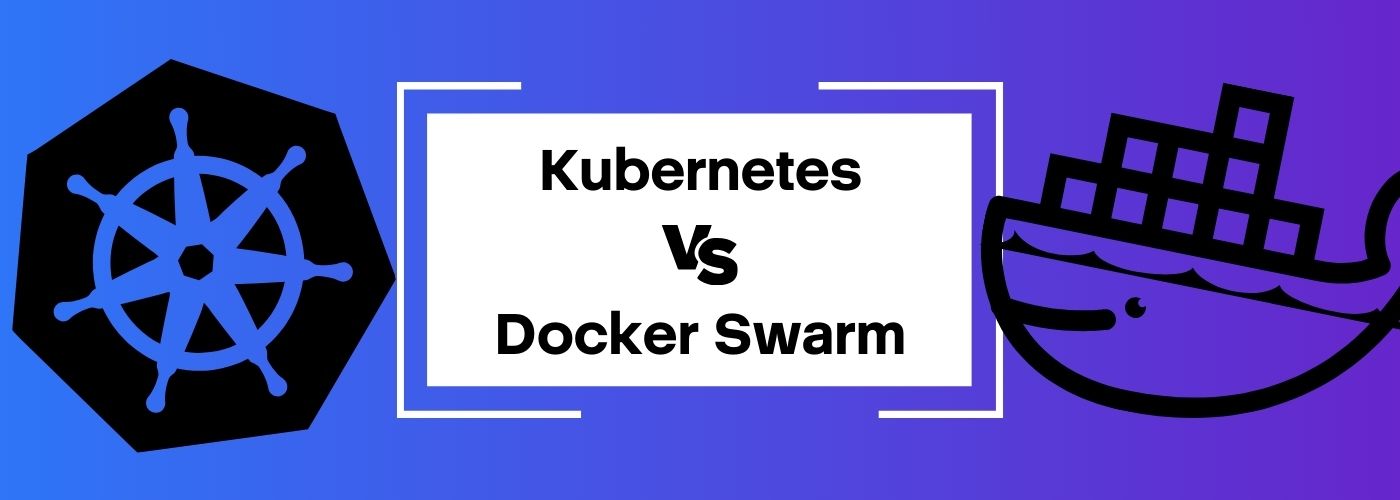ntainer orchestration is crucial in handling the intricacies of deploying and scaling containerized applications. Two key players in this field are Kubernetes and Docker Swarm, each offering a distinct approach to container orchestration.
In this post, we’ll explore the strengths and weaknesses of each, helping you choose the solution that best suits your organization’s needs. Let’s get started!
What Is Kubernetes vs Docker Swarm?

Abbreviated as K8s, Kubernetes is an open-source container orchestration platform crafted by Google. Acting as a “smart manager” for your applications, Kubernetes delivers a robust and scalable framework for automating the deployment, scaling, and management of containerized applications, helping ensure smooth and dependable operation.
Operating on a declarative configuration, Kubernetes enables users to specify the desired state of their applications. It then efficiently handles the orchestration, making the process seamless and effective.
Developed by Docker, Docker Swarm is another container orchestration tool known for its simplicity. It integrates seamlessly with Docker containers, adhering to the principle of “batteries included but removable.”
Docker Swarm aims to provide an out-of-the-box solution for container orchestration, designed with simplicity in mind. It allows users the flexibility to replace or extend components according to their specific needs.
When To Use Kubernetes

Managing Complexity: Kubernetes excels in handling complex applications with multiple microservices, making it ideal for large-scale deployments. Its advanced orchestration capabilities facilitate seamless communication and efficient scaling of interconnected components.
Kubernetes can also minimize IT security threats by preventing unauthorized access and limiting the scope of actions that users, applications, or processes can perform within the cluster.
Multi-Cloud Flexibility: Organizations operating in multi-cloud or hybrid cloud environments find Kubernetes advantageous. It abstracts away the underlying infrastructure, providing the flexibility to deploy applications across various cloud providers or on-premises setups, ensuring a consistent experience.
Extensive Ecosystem: Kubernetes boasts a vibrant ecosystem, offering a diverse set of tools and extensions. This is particularly beneficial for organizations seeking a comprehensive solution with a wide range of features, including advanced networking solutions, robust monitoring, and logging capabilities.
When To Use Docker Swarm

Simplicity and Quick Deployment: Docker Swarm is the go-to choice when simplicity and rapid deployment are top priorities. It is an excellent option for smaller applications or teams new to container orchestration, providing a straightforward setup with a minimal learning curve.
Integrated Docker Experience: Leveraging Docker Swarm is a natural choice for teams already familiar with Docker. It seamlessly integrates with Docker containers, allowing users to extend existing workflows with minimal adjustments. This integrated experience significantly reduces onboarding time for teams accustomed to Docker.
Built-in Security: Docker Swarm is preferred in environments where built-in security features are crucial. It comes with features like mutual TLS authentication and built-in secrets management, ensuring a secure container orchestration environment without the need for extensive manual configuration.
Why Is Kubernetes Better Than Docker Swarm?
While both Kubernetes and Docker Swarm have their merits, Kubernetes often emerges as the preferred choice for organizations with specific needs and requirements.
Kubernetes stands out for its scalability and flexibility. It efficiently handles diverse workloads, making it suitable for applications with varying demands. Whether your application is stateful or stateless, Kubernetes provides the necessary tools for effective management and scaling.
At the same time, Kubernetes is also particularly useful for safeguarding private or sensitive information, offering powerful compartmentalization and data protection while preventing unauthorized access.
Just as importantly, Kubernetes adopts a declarative approach to configuration, giving users the freedom to define and declare the desired state of their applications. This minimizes the need for manual intervention and ensures consistency across different environments. By specifying the desired outcome, Kubernetes handles the complexities of achieving that state, reducing the likelihood of configuration errors.
Ultimately, the choice between Kubernetes and Docker Swarm depends on your organization’s specific needs and priorities.
While Docker Swarm suits simplicity and quick deployment, especially for smaller applications or teams new to container orchestration, Kubernetes excels in managing complex, large-scale deployments.
Understanding the strengths of each platform is crucial for making an informed decision that aligns with your organization’s unique goals. With a solid understanding of your company’s needs and the options available, you can find the perfect solution!


More to Read
What Are Managed Cloud Services? (And Why Some Businesses Choose Self-Managed Cloud Instead)
Cloud computing has revolutionized how businesses deploy, manage, and scale their digital infrastructure.
Apr
How to Choose the Right Cloud Storage Solution: A Comparison of Features, Costs, and Security
The sheer volume of data businesses handle today is enormous. Globally, approximately 402.74 million
Apr
Sharktech Announces New Web Hosting and Cloud Industry Alliance
Sharktech and 22 Other Companies Launch Secure Hosting Alliance to Build Trusted Web Hosting Industry
Feb
Think the Cheapest Dedicated Server is A Good Idea? What You Need to Know
Should you hunt for the cheapest dedicated server? Finding the most affordable option
Oct
Discover How These 8 Cloud Monitoring Tools Can Help You Drive Better Business Performance
When it comes to managing your cloud environment, cloud monitoring tools are essential
Oct
Pick the Best Cloud Management Platform with These 5 Pro Tips
Managing cloud infrastructure can become overwhelming, especially as businesses scale and adopt more
Oct